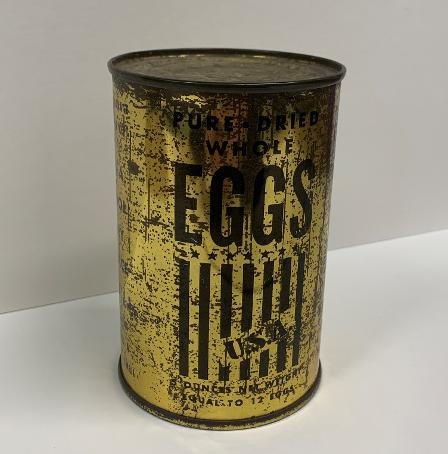Provisions: Powdered Egg

My own thought is that it is too much to expect the English people to fight on empty stomachs, and that condition is not very far off. It is my belief that we must transfer a great number of our ships to the English flag for the transportation of food, and a broadcast of that kind would help mold public opinion.1
Shortly after the signing of the Lend-Lease Act, the United States of America began shipping food to the UK.
One such food item was powdered eggs. Readily distributed by the Ministry of Food, powdered eggs were simply fresh eggs with the moisture taken out of them. They were lighter to transport, required no refrigeration and had a storage life of five to 10 years.
Each tin was equivalent to a dozen eggs and they could be rehydrated using water to create scrambled eggs, omelettes and other dishes that required cooked eggs.
Despite their unappetising appearance, Britons were encouraged to eat them as they were rich in protein, Vitamin D and B12 content.
In 1945, Professor of Economics at Columbia University, Horace Taylor, claimed the Lend-Lease Act contributed about 10 percent of all of Britain's food supply2
1. 'Diary of Henry Morgenthau JR' - April 1941
2. Taylor, Horace: 'How Shall Lend-Lease Accounts Be Settled' (Columbia University, 1945)